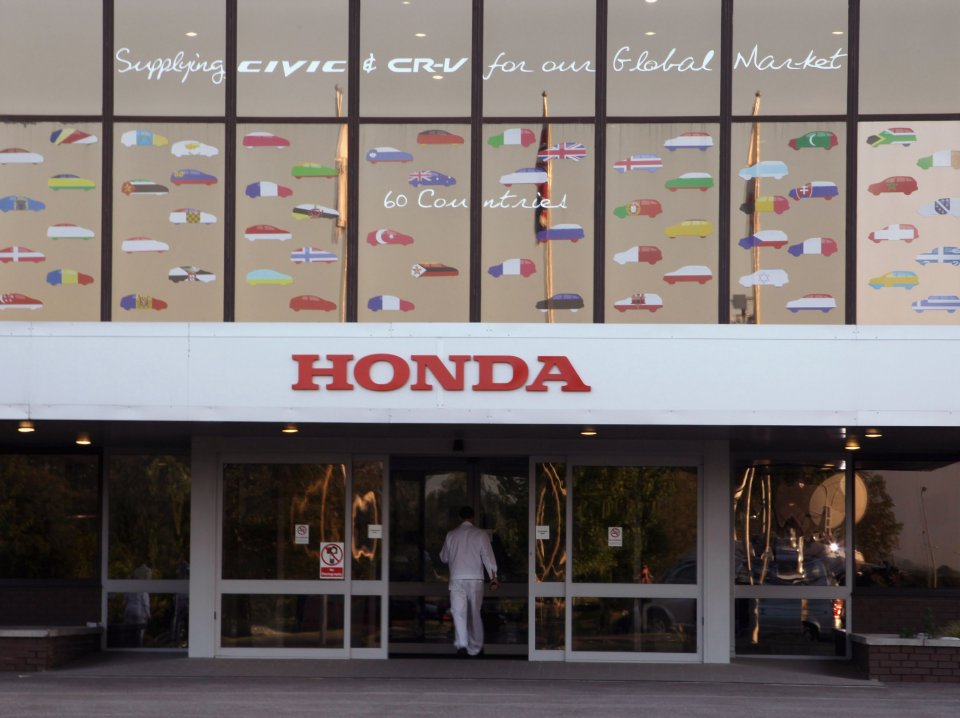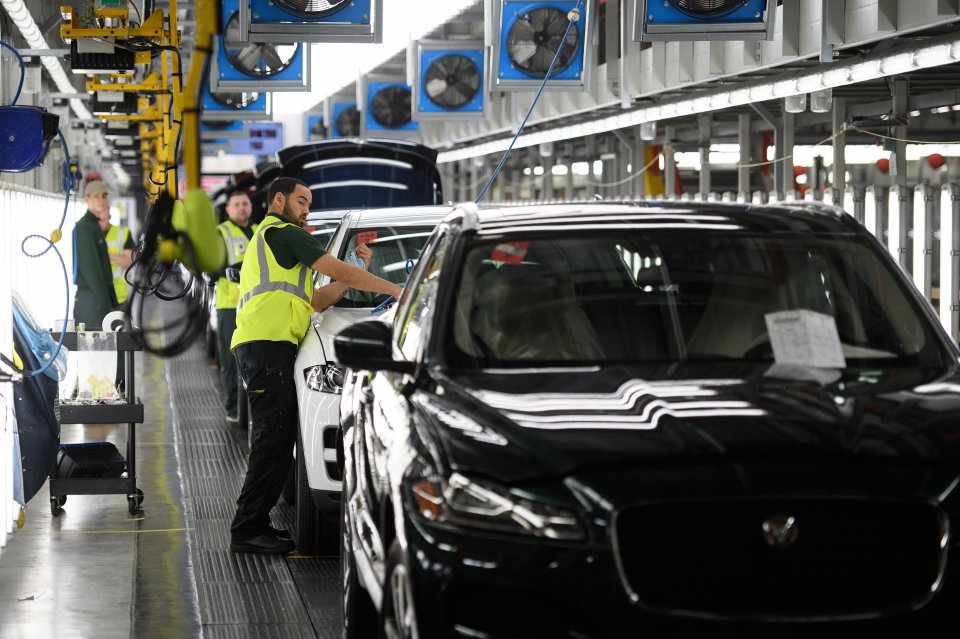Honda to close Swindon factory in ‘devastating’ blow to Britain’s car industry, putting 3,500 jobs at risk
Honda is gearing up to announce the closure of its Swindon factory, plunging 3,500 jobs into uncertainty, according to a local MP.
The Japanese car manufacturer will close its only factory in the EU in 2022, delivering a serious blow to Britain’s already ailing car manufacturing industry. The decision was first reported by Sky News.
Read more: DEBATE: Is Brexit likely to be the biggest factor behind Nissan decision?
Justin Tomlinson, Conservative MP for North Swindon, tweeted this afternoon that Honda said the decision was “based on global trends and not Brexit”.
“All European market production [for Honda] will consolidate in Japan in 2021,” he said.
He added he would work with Honda, business secretary Greg Clark and unions to set up a taskforce to provide support for staff at the plant.
“Honda will be consulting with all staff and there is not expected to be any job losses, or changes in production until 2021.”
City A.M. has approached Honda for comment.
It comes after Nissan abandoned plans to build its new X-Trail model in Sunderland earlier this month, moving production to Japan instead.
https://twitter.com/JustinTomlinson/status/1097507582820995072
But Des Quinn, Unite union’s national officer for the car industry, said such a closure would be a “shattering body blow at the heart of UK manufacturing”.
“The car industry in the UK over the last two decades has been the jewel in the crown for the manufacturing sector – and now it has been brought low by the chaotic Brexit uncertainty created by the rigid approach adopted by prime minister Theresa May.
Honda’s Swindon plant produces more than 100,000 Civic models for customers all over the world. The firm will reportedly keep its European headquarters in Bracknell, Berkshire, as well as its UK Formula One racing operations.
Mixed messages

Honda workers enter the factory in Swindon (Source: Getty)
As recently as September, Honda had claimed it was “right behind” continuing production in Swindon.
“The UK forms part of our global network of manufacturing plants, so the only place we produce the vehicle we produce at Swindon is in Swindon itself,” Honda Europe's senior vice-president Ian Howells told the BBC last year.
“The logistics of moving a factory the size of Swindon would be huge and as far as we're concerned, we're right behind supporting continued production at Swindon.”
Manufacturing in trouble
The last few months have been torrid for car manufacturing in Britain, with Nissan and now Honda’s plans coming hot on the heels of thousands of job cuts at Jaguar Land Rover (JLR).
JLR last month said it would swing the axe at 4,500 staff as it looks to safeguard its future after a slump in demand from China and falling diesel sales.

Jaguar Land Rover has also announced thousands of job cuts in the run-up to Brexit (Source: Getty)
UK car sales also fell in 2018 for the second year running. Dealerships sold 2.37m new cars last year, 6.8 per cent fewer than in 2017, and 12 per cent below 2016’s peak of 2.69m, The Society of Motor Manufacturers and Traders (SMMT) said.
Christian Stadler, professor of strategic management at Warwick Business School, said Honda faced the same challenges as Nissan. “The global economy is slowing down, which has hit key markets such as the US and China.
“These difficult conditions will put pressure on companies to be more competitive with their prices. That is bad news for British car manufacturing if vehicles are subject to new tariffs after Brexit, as Japan's new deal with the EU could soon make it cheaper to build cars elsewhere.”
A 'devastating' blow
Rachel Reeves, chair of the influential Business, Energy and Industrial Strategy (Beis) Committee of MPs said the decision is "devastating for Swindon, for jobs, for the supply-chain, and for the UK’s car industry".
Read more: Government could pull £60m support package for Nissa
The threat of Brexit is already having a damaging impact on investment decisions in the UK, she added. "The PM now needs to rule out no deal immediately and keep us in the single market and customs union rather than risk further fatal damage to our car industry."
"Japan and the EU have a free-trade agreement, guaranteeing tariff free access. It would be an act of folly to toss that away, along with friction-free access to the EU market, in the forlorn hope that we could negotiate a better deal.”